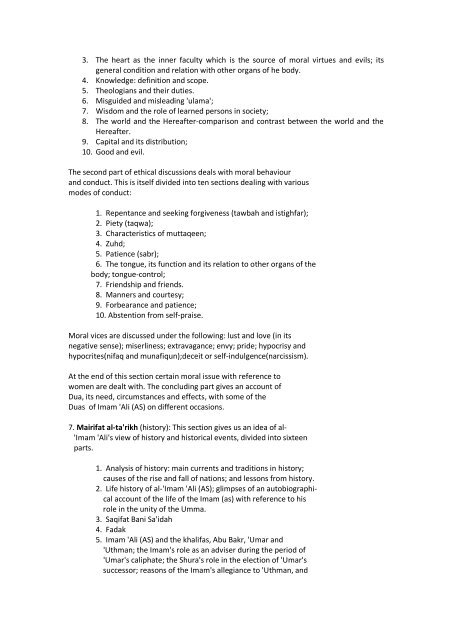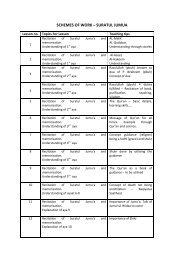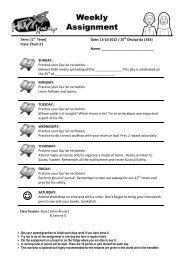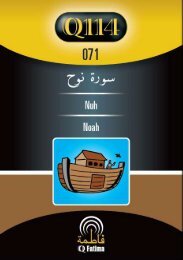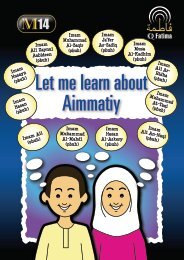NAHJUL BALAGHA An introduction - Hujjat Workshop
NAHJUL BALAGHA An introduction - Hujjat Workshop
NAHJUL BALAGHA An introduction - Hujjat Workshop
You also want an ePaper? Increase the reach of your titles
YUMPU automatically turns print PDFs into web optimized ePapers that Google loves.
3. The heart as the inner faculty which is the source of moral virtues and evils; its<br />
general condition and relation with other organs of he body.<br />
4. Knowledge: definition and scope.<br />
5. Theologians and their duties.<br />
6. Misguided and misleading 'ulama';<br />
7. Wisdom and the role of learned persons in society;<br />
8. The world and the Hereafter-comparison and contrast between the world and the<br />
Hereafter.<br />
9. Capital and its distribution;<br />
10. Good and evil.<br />
The second part of ethical discussions deals with moral behaviour<br />
and conduct. This is itself divided into ten sections dealing with various<br />
modes of conduct:<br />
1. Repentance and seeking forgiveness (tawbah and istighfar);<br />
2. Piety (taqwa);<br />
3. Characteristics of muttaqeen;<br />
4. Zuhd;<br />
5. Patience (sabr);<br />
6. The tongue, its function and its relation to other organs of the<br />
body; tongue-control;<br />
7. Friendship and friends.<br />
8. Manners and courtesy;<br />
9. Forbearance and patience;<br />
10. Abstention from self-praise.<br />
Moral vices are discussed under the following: lust and love (in its<br />
negative sense); miserliness; extravagance; envy; pride; hypocrisy and<br />
hypocrites(nifaq and munafiqun);deceit or self-indulgence(narcissism).<br />
At the end of this section certain moral issue with reference to<br />
women are dealt with. The concluding part gives an account of<br />
Dua, its need, circumstances and effects, with some of the<br />
Duas of Imam 'Ali (AS) on different occasions.<br />
7. Mairifat al-ta'rikh (history): This section gives us an idea of al-<br />
'Imam 'Ali's view of history and historical events, divided into sixteen<br />
parts.<br />
1. <strong>An</strong>alysis of history: main currents and traditions in history;<br />
causes of the rise and fall of nations; and lessons from history.<br />
2. Life history of al-'Imam 'Ali (AS); glimpses of an autobiographical<br />
account of the life of the Imam (as) with reference to his<br />
role in the unity of the Umma.<br />
3. Saqifat Bani Sa'idah<br />
4. Fadak<br />
5. Imam 'Ali (AS) and the khalifas, Abu Bakr, 'Umar and<br />
'Uthman; the Imam's role as an adviser during the period of<br />
'Umar's caliphate; the Shura's role in the election of 'Umar's<br />
successor; reasons of the Imam's allegiance to 'Uthman, and


